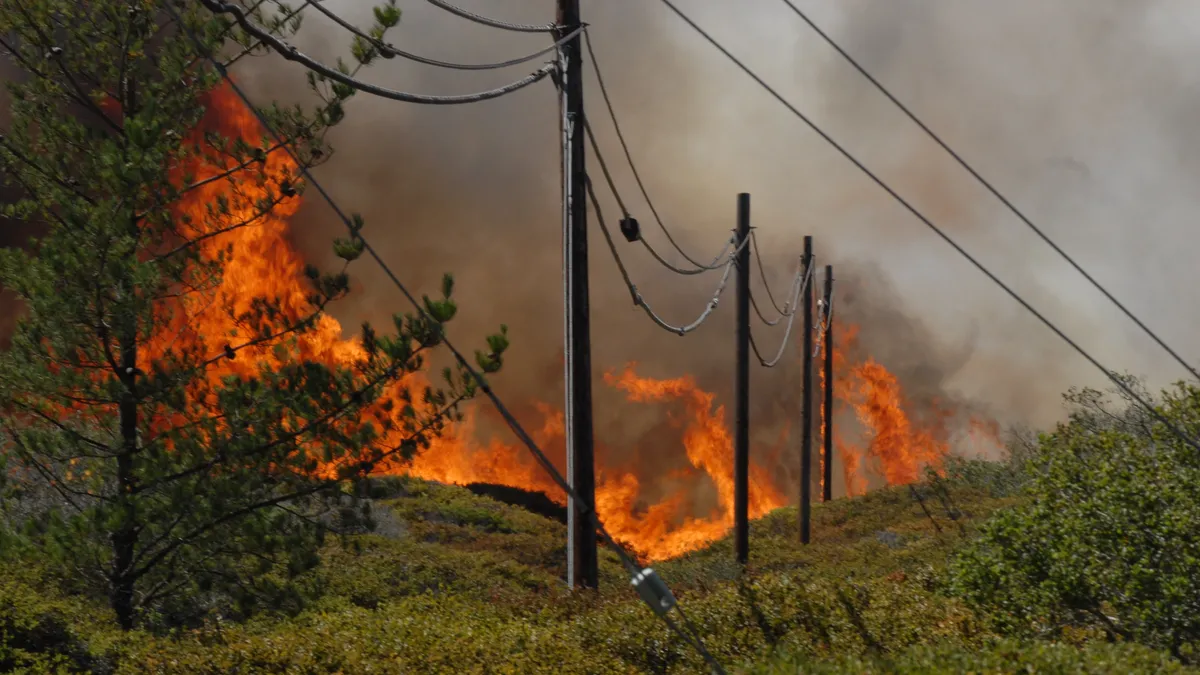Dive Brief:
- Citing risks related to wildfires, Southern California Edison (SCE) on Thursday asked the Federal Energy Regulatory Commission to significantly raise its return on equity (ROE) due to "dramatic, material changes" to its regulatory and financial conditions.
- SCE is requesting an overall ROE of 17.12%, plus incentives consistent with past years — the utility said a "conventional" return for a similar IOU is around 11.12%.
- California utilities have been rocked by the state's deadly wildfires and strict liability rules. In February, SCE announced it would take a $1.8 billion charge related to claims and Pacific Gas & Electric in January filed for bankruptcy, facing billions in potential liability of its own.
Dive Insight:
SCE has been downgraded twice by credit ratings agencies this year, leaving it "near the bottom of the investment grade category," according to the utility's request to raise its ROE. Despite its efforts to improve safety while also addressing new legislative, regulatory and legal strategies, the utility said it needs a higher rate of return in order to attract necessary capital.
The utility told FERC that it "cannot predict whether or when a comprehensive solution mitigating the significant risk faced by California utilities related to wildfires will be achieved" and that the stock of SCE's parent company, Edison International, "has dropped dramatically since 2017 as a result of this wildfire risk."
In January, Standard & Poor's downgraded SCE from BBB+ to BBB, and in March, Moody's Investors Services downgraded SCE's credit ratings including its senior unsecured rating to Baa2 from A3.
Edison International closed at $62.60/share yesterday but traded above $80 at points in 2017.
SCE told regulators that once California policymakers have brought some certainty and stability to how wildfire-related costs are addressed, the ROE could be adjusted downward.
"We do not believe a higher return on equity is a long-term solution to the urgent situation utilities in California are facing," Caroline Choi, senior vice president of corporate affairs for SCE and Edison International, said in a statement. "However, this is what is needed in the near term in order to attract the capital required to provide safe, reliable electricity."
If FERC approves the increase, the company estimates average residential customers will see an increase of about $2.20/month on the FERC-regulated portion of their bill.
Because of California's interpretation of inverse condemnation, utilities can be held accountable for wildfires caused by their equipment, even if a company is not found negligent. Changing those rules will be difficult, Moody's warned recently, in part because of negative perceptions of PG&E.
While California's devastating wildfires have been problematic for all utilities, PG&E so far has been hit hardest. The embattled utility recently announced sweeping management changes, including a new CEO and 10 new board members.
In February, PG&E determined it would take a $10.5 billion pre-tax charge related to the 2018 Camp Fire, concluding its equipment was likely the cause of the deadly blaze.
Rate hikes due to wildfires are a growing concern for utilities and their customers. New analysis this week estimated PG&E rates could rise as much as 50% if the utility faces new liabilities in the coming seasons.















